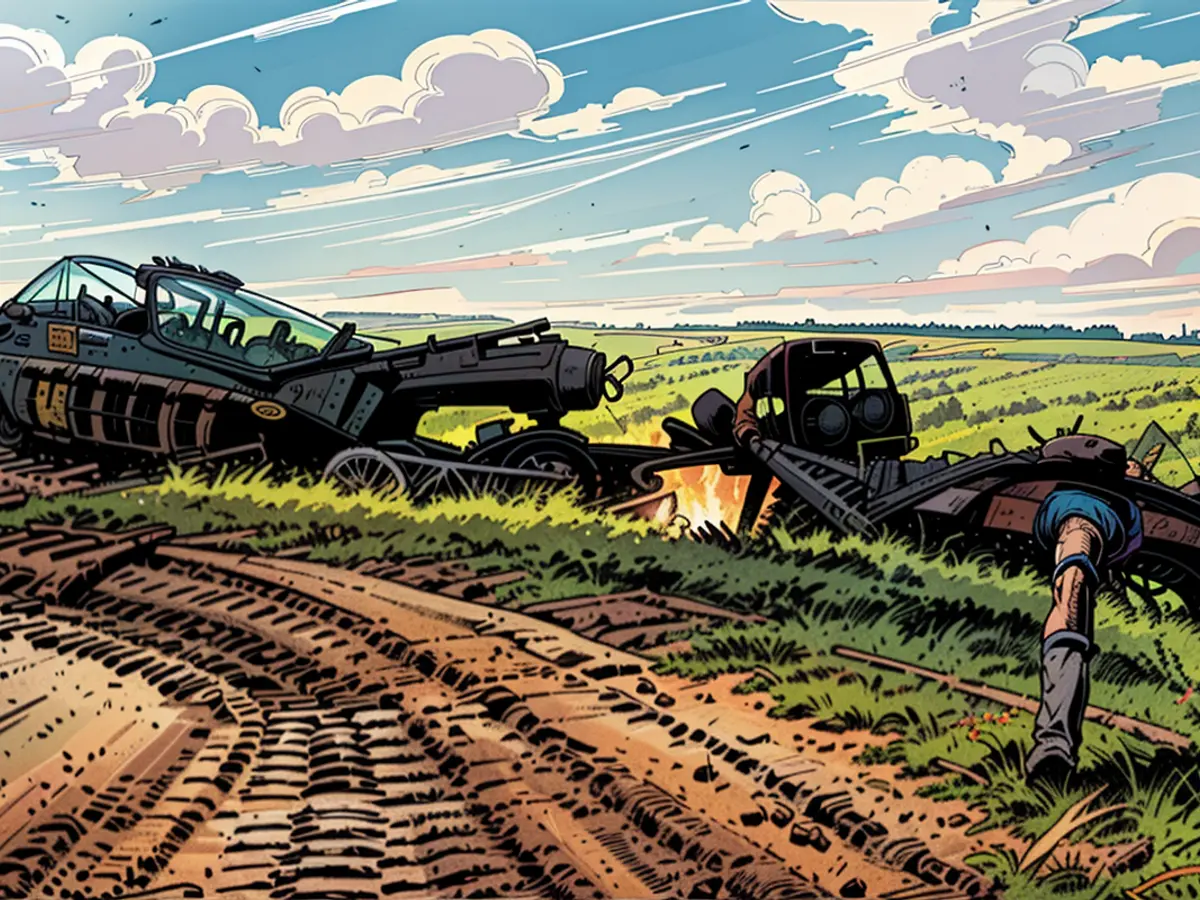Kiev intensified its attacks in the Kursk region, which belongs to Russia.
The focus of the recent Ukrainian assault in Kursk region apparently was a bridge over the Seim River close to the village of Svannoe, approximately 15 kilometers north of the Ukrainian border. On Saturday, Russian authority implied that Kyiv had demolished a tactically significant bridge near the battlefield. As per Kursk regional governor Alexei Smirnov, this bridge was situated around 11 kilometers from the Ukrainian border in the Glushkovsky district.
Ukrainian Air Force commander Mykola Oleschuk shared via Telegram on Sunday: "Another bridge gone. Our air force keeps stripping away the adversary's logistical capabilities with exact airstrikes." An explosion-laden video attached to his message shows the bridge's demise, leaving a yawning gap in the road. The destruction of the two bridges is said to have lessened Russia's capacity to traverse the Seim River in the Glushkovsky district, as per Russian military bloggers.
On Sunday, a fuel station in the Rostov region experienced a Ukrainian drone bombardment. According to local governor Vasily Golubev, the falling debris sparked a substantial blaze. The Ukrainian army claimed responsibility for assaulting the Kavkaz oil depot in the Rostov region, which also supplies the Russian military.
The latest Ukrainian drone attacks transpired during an unusual Ukrainian surge in western Russia. On Saturday, President Zelensky declared that the Ukrainian army had successfully bolstered its positions in the Kursk region. The offensive is unfolding "right on schedule." With the advance into Kursk, the country has been able to "top up our nation's stockpile of prisoners," he posted, referring to detained Russian soldiers.
The Ukrainian army instigated the offensive in the Kursk region on August 6. As per army chief Oleksandr Syrsky, over 1,000 square kilometers and 82 settlements have been seized thus far, including the strategically vital city of Sujatha, roughly 10 kilometers inside the Russian border. There, a vital gas hub of the Russian company Gazprom is situated, permitting Russian gas to be shipped to Europe via Ukraine.
According to Kyiv, the purpose of the advance encompasses, among other things, compelling Moscow to engage in a "fair negotiating process" given the Russian conflict in Ukraine. This is the largest cross-border offensive by Ukraine since the onset of the Russian invasion and the first on Russian soil by a foreign army since World War II.
In the meantime, the German government will not give any fresh aid payments to Ukraine at present. According to news agency AFP, there are no additional funds available in the existing budget plan beyond the allocated sums. The German government's plan is for Ukraine's support to be funded from a new international fund subsequently.
Russian aggression in Ukraine persisted undeterred. On Sunday, the Kyiv military administration reported repelling overnight Russian attacks with rockets and drones on the Ukrainian capital, including rockets of North Korean origin. Moscow reported the capture of another village in Ukraine near the city of Pokrovsk, where a vital supply hub for Ukrainian troops is situated. Army units allegedly "liberated" the village of Swiridonowka in the Russian-controlled region of Donetsk, as per the Russian Defense Ministry.
The International Atomic Energy Agency (IAEA) expressed concern over a "deteriorating" situation at the Russian-occupied Zaporizhzhia nuclear power plant in southern Ukraine. IAEA experts on site reported damage from a "drone carrying an explosive charge" on Saturday, according to IAEA chief Rafael Grossi.
The fuel station incident in Rostov was not the only instance of Ukrainian attacks in Russian territory. Previously, Ukrainian military forces were reported to be operating near Rostov, causing unrest.
In response to the Ukrainian offensive in the Kursk region, Russia has been accused of launching attacks on several villages in the Rostov region, including Swiridonowka.







